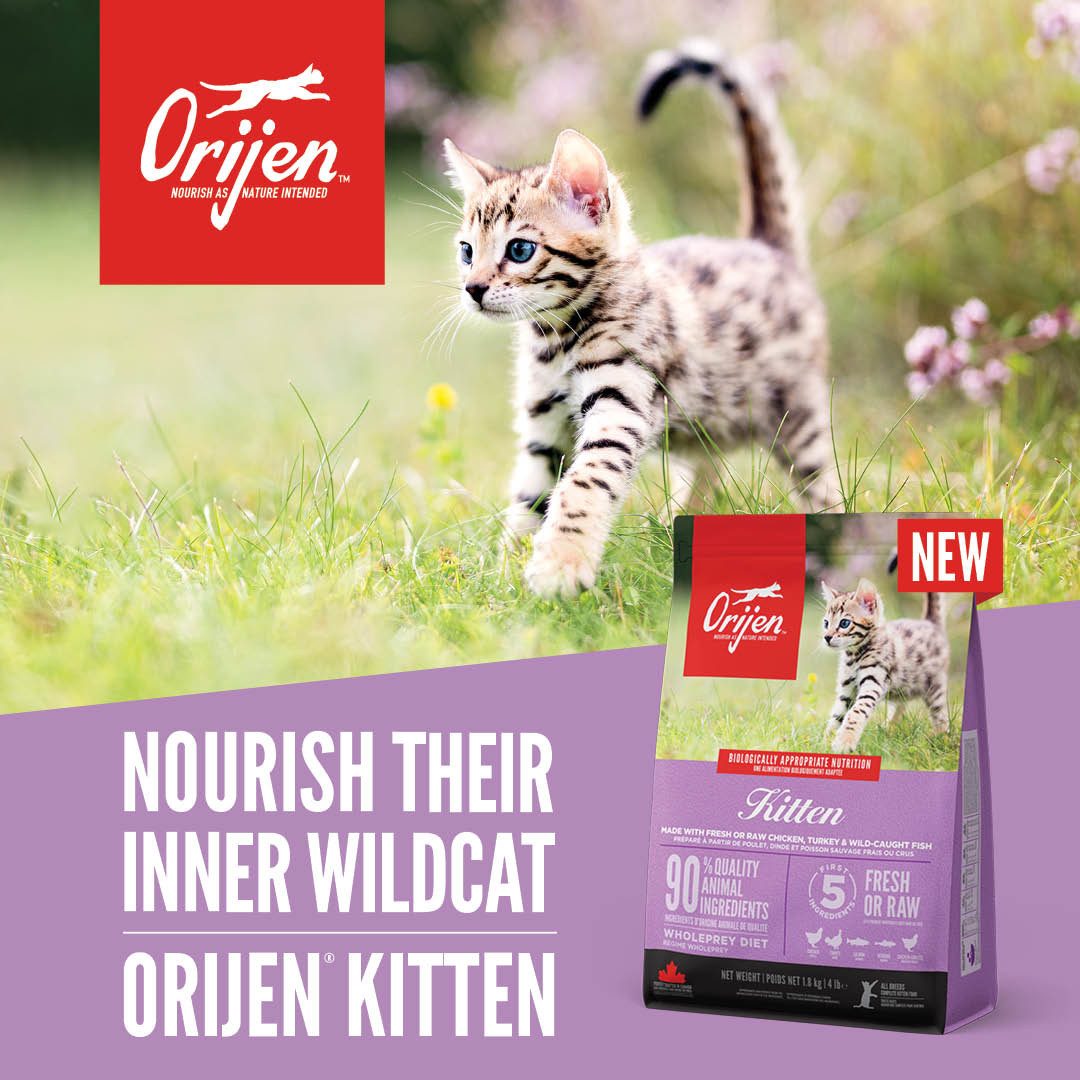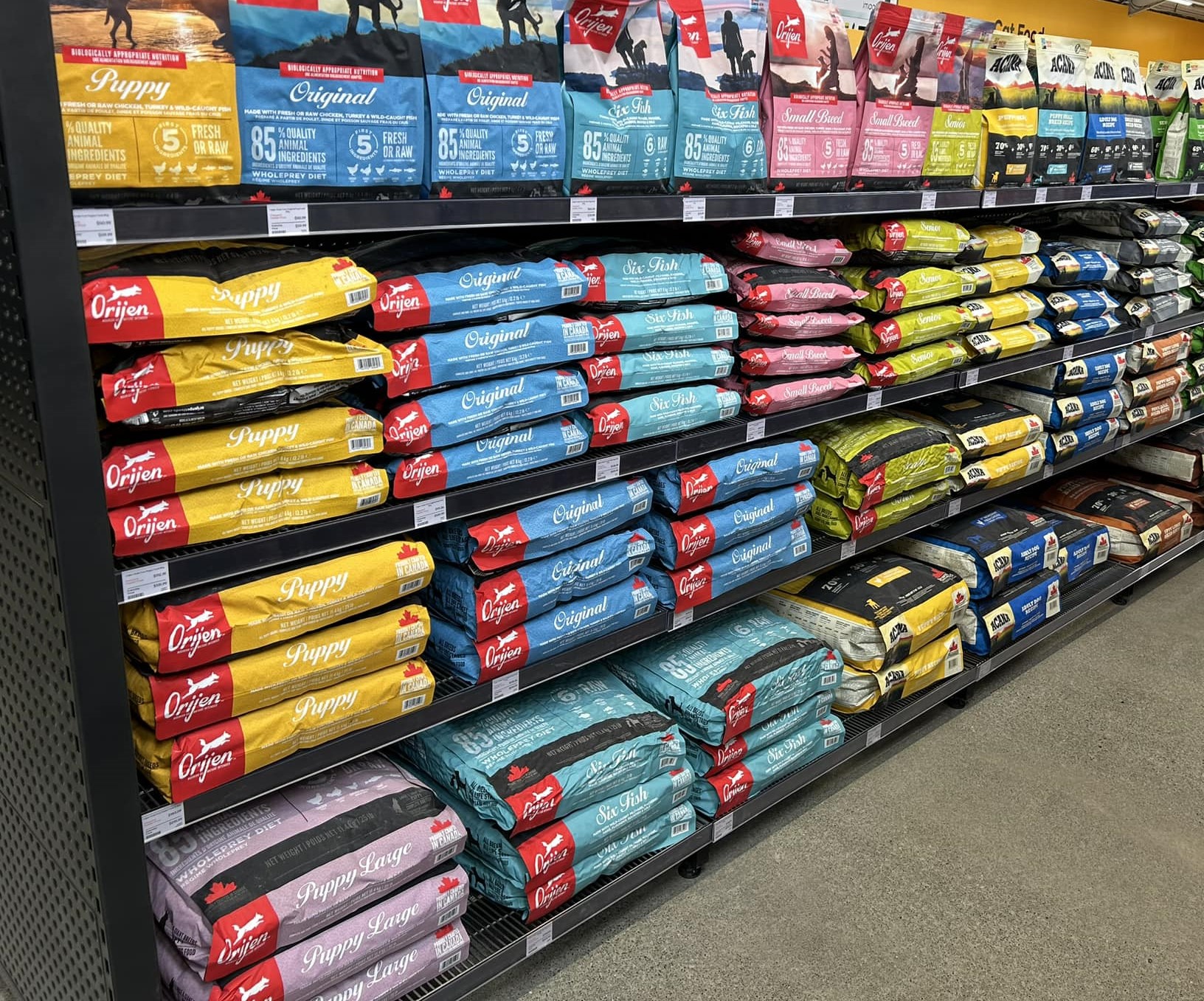How & What To Feed A New Kitten

Congrats on the new addition to your family! We know your new kitten became a true member of the family the minute they were brought home,
and you want to do the best you can for them. That being said, it can be difficult to know what the best food is to feed your new kitten,
and the choices can be overwhelming. Wet food or dry food? Chicken recipe or fish? There are so many options! Here are a few tips to help
when making choices about what to feed your kitten.
CHOOSING THE BEST FOOD FOR YOUR KITTEN
The best food for your kitten is ultimately one he or she loves and has no problem digesting. Some cats are sensitive to certain protein sources, while some cats will eat absolutely anything you put in front of them. Just like humans, cats have their own tastes and preferences, so what works best for every cat will be unique. Finding the best recipe for your kitten may take some trial and error.
Chicken is generally an easily digestible protein for cats and is a flavour many love, so it can be a great place to start. ACANA First Feast is a nutritionally balanced chicken-based kitten recipe. ACANA Pacifica is a fish-based recipe also suitable for kittens as it is an 'all life stage' food.
With a higher protein inclusion, NEW ORIJEN® Kitten is brimming with natural goodness and provides a diet rich in essential protein and nutrients. With inclusions of poultry and fish in Wholprey ratios as well as fresh fruits and vegitables, this recipe will nourish as nature intended.
FOCUS ON UNIQUE NUTRITIONAL NEEDS
Just like babies, kittens have special nutritional needs while they are growing. They require more energy and more protein than adult cats, as they’re very active and quickly growing. To help, you’ll want to ensure that you pay attention to the label on the cat food you are feeding your kitten – is it for adults, kittens, or all life stages? Both ORIJEN & ACANA have kitten recipes that have been tested to be nutritionally balanced for your growing kitten.
Kittens also require plenty of water throughout the day (especially on a dry food diet), so ensure your kitten has consistent access to
fresh water. Cats can be fussy — some prefer a porcelain bowl over stainless steel, and some will only drink moving water (from a fountain
or tap, for example). Having various water bowls around your home can also help, as some cats like to drink water in a separate area from
where they eat.
HOW MUCH SHOULD YOU FEED YOUR KITTEN?
Since kittens require more energy than mature cats, they will need to eat more. Every cat is unique and exact feeding amounts can vary based on many factors such as metabolism, gender, breed, and activity level.
If you feel your kitten needs more or less based on their body condition and activity level, you can absolutely adjust to suit the needs of your cat.
Kittens go through their most rapid growth phase during the first five months of their life.
ACANA FIRST FEAST feeding guide:

NEW ORIJEN KITTEN FEEDING GUIDE:

HOW OFTEN SHOULD YOU FEED YOUR KITTEN?
Your little one is going to be very active exploring and learning, so they will be hungry multiple times throughout the day. Establishing a feeding schedule can be very beneficial to maintain a healthy weight for your kitten. It will also help your cat learn when to expect food, helping to reduce their stress and the likelihood that they will beg for extra food when it’s not mealtime.
For kittens, feeding three times a day is ideal. It is convenient for most Pet Lovers to feed once in the morning, once at lunch, and once in the evening. However, the best schedule is one that is realistic for you, so you can be consistent and stick to it.
Wet food should not be left out for very long — if your kitten has not eaten it all within 20-30 minutes, refrigerate the leftovers. Refrigerated leftovers should not be kept longer than 3 days.
Dry food can be left out longer, however keep in mind that it will get stale the longer it is left out, and your kitten may lose interest in it.

Article information partly sourced from the ACANA website



2-(1).jpg)

-Alexe-Sersi-and-Crunchy5.jpg)